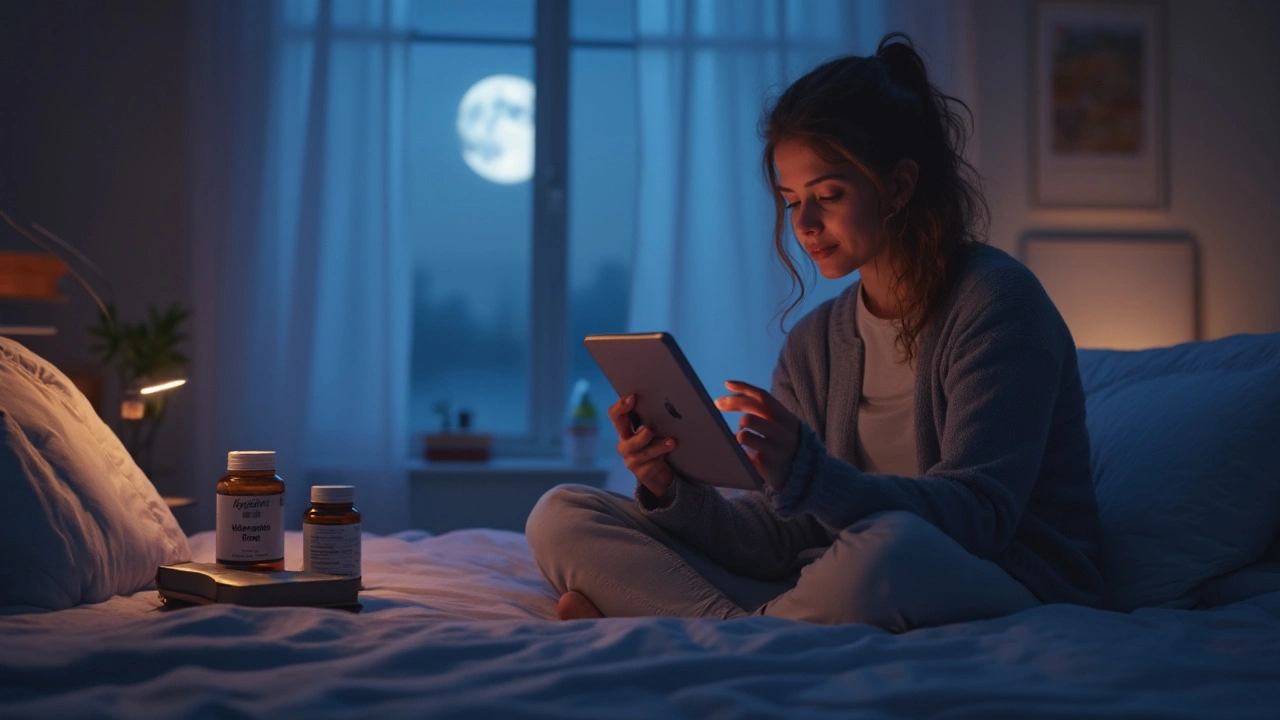Melatonin: What You Need to Know for Better Sleep
Ever find yourself staring at the ceiling, wide awake when you want to be asleep? Melatonin might be the fix you’re looking for. It’s a natural hormone your body makes to tell you when it’s time to hit the hay. But sometimes, due to stress, jet lag, or irregular schedules, your melatonin levels get out of whack. That’s where melatonin supplements come in—to help reset your internal clock.
People use melatonin mainly to manage sleep problems like insomnia or trouble falling asleep after travel. It’s popular because it’s gentle compared to traditional sleeping pills and has fewer side effects. Though it’s natural, that doesn’t mean you should take it like candy. Understanding when and how much to take can make a big difference in getting the best results.
How Melatonin Works and When to Use It
Your brain releases melatonin in response to darkness, kicking off feelings of sleepiness. When you expose yourself to light late at night—think screens or bright lamps—that signal gets interrupted, messing up your sleep rhythm. Taking melatonin supplements at the right time can trick your body into feeling sleepy at the proper hour. For example, if you’re dealing with jet lag, taking melatonin in the evening at your destination helps reset your clock faster.
Timing is key: most people take it about 30 to 60 minutes before bedtime. The dose often ranges from 0.5 mg to 5 mg depending on your needs and sensitivity. Starting low and seeing how your body responds is smart. Using melatonin consistently for short periods usually works well, but if sleep issues persist, chatting with a doctor is the best move.
Benefits, Safety, and Things to Watch Out For
Besides helping you fall asleep faster, melatonin can improve overall sleep quality and regulate irregular sleep patterns, like those caused by shift work. Some studies also suggest it has antioxidant properties, but the main appeal is still its role in sleep regulation.
Side effects are generally mild but can include drowsiness the next day, headache, or slight dizziness. Avoid driving or operating heavy machinery after taking melatonin until you know how it affects you. Also, it can interact with some medications, so double-check with a healthcare professional if you’re on other treatments.
One common mistake is using melatonin as a long-term fix. It’s meant to assist with specific sleep issues temporarily. Building good sleep habits, like a regular schedule and limiting screen time before bed, will do wonders alongside melatonin.
Ready for better nights? Melatonin could be the simple nudge your body needs to help you fall asleep and wake up feeling refreshed. Just use it wisely, and don’t forget to pay attention to what your body tells you along the way.

